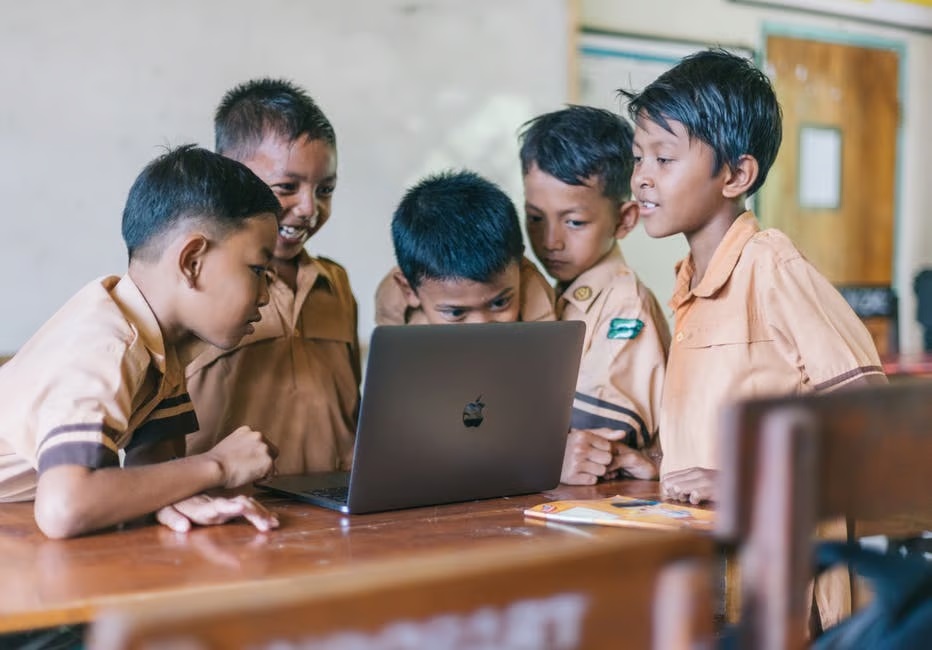
The evolution of online learning has transformed education into a dynamic and adaptable experience. More families are turning to virtual education to accommodate unique learning needs, schedule demands, and personal preferences. Unlike traditional classroom settings, online school education offers an unprecedented level of flexibility—both academically and logistically—giving students more control over how, when, and where they learn.
Whether it's to support students with special learning styles, accommodate competitive athletes, or provide alternatives for families in remote areas, online schooling has proven to be a valuable solution. With the right structure and support, students can thrive in virtual learning environments while benefiting from the personalized pace and adaptable curriculum that many brick-and-mortar schools cannot offer.
Table of Content
- Customizing the Learning Environment for Individual Needs
- Flexibility That Supports Family Schedules
- Broadening Access to Diverse Curriculum Options
- Supporting Academic Success Through Personalized Instruction
- Making Education Accessible to Unique Student Populations
- Encouraging Responsibility and Self-Motivation
- Fostering Social Engagement in Creative Ways
Customizing the Learning Environment for Individual Needs
One of the most powerful advantages of online education is the ability to customize the learning environment. Traditional classrooms often struggle to meet the needs of every student, especially when learning styles vary. In a virtual setting, students can tailor their workspace for comfort and focus, use adaptive technologies, and pace themselves according to how quickly they absorb material.
This level of control can be especially beneficial for students with attention challenges, sensory sensitivities, or anxiety. Without the distractions of a bustling classroom, learners are better equipped to concentrate and retain information. Families also have the option to implement personalized strategies such as taking movement breaks, integrating assistive devices, or scheduling lessons around a student’s peak productivity hours.
Flexibility That Supports Family Schedules
Families today juggle demanding work obligations, extracurricular activities, and ever-changing routines. Online schooling aligns naturally with this reality, allowing education to fit into a family’s life, rather than the other way around. With recorded lessons, asynchronous assignments, and self-paced modules, families can build schedules that work around travel, appointments, or other time-sensitive needs.
This flexibility benefits more than just the students—it provides peace of mind for working parents, guardians caring for multiple children, and families navigating transitions like relocation or illness. By reducing the need for rigid drop-off and pick-up times, online school also eases transportation burdens, especially in rural or underserved communities.
Broadening Access to Diverse Curriculum Options
Online education platforms often offer a wider array of courses and electives than traditional schools. From foreign languages and coding to art history and advanced sciences, students can explore interests and talents that might otherwise go untapped. This access enables a more well-rounded education and helps students discover potential career paths early.
Because students aren’t limited by geography, they can also engage with specialized programs or instructors that wouldn't be available locally. For those seeking targeted academic tracks or college-prep resources, virtual schools often partner with institutions or professionals to offer enrichment opportunities that meet varied academic and personal goals.
Supporting Academic Success Through Personalized Instruction
In a virtual learning environment, teachers are better positioned to offer one-on-one support and personalized instruction. Without the constraints of managing a full classroom in real time, educators can focus more attention on each student’s progress, provide timely feedback, and adapt lessons based on learning style or performance.
Many online programs use data-driven platforms that track a student’s pace, comprehension, and engagement. This allows teachers and families to identify challenges early and adjust strategies accordingly. Instead of falling behind unnoticed, students have the opportunity to catch up with personalized attention and tools designed to support their growth.
Making Education Accessible to Unique Student Populations
Online learning is particularly advantageous for students whose circumstances don’t align well with traditional education models. This includes young athletes, performers, military families, and students with medical conditions that limit in-person attendance.
The flexibility of virtual programs ensures that these students don’t have to choose between personal responsibilities and academic achievement. For example, programs designed to support K-12 virtual education for Nevada students give learners the chance to access an accredited curriculum, certified teachers, and individualized support, regardless of where they live or what challenges they may face. By removing logistical barriers, these online programs make quality education more inclusive and equitable.
Encouraging Responsibility and Self-Motivation
While online learning provides flexibility, it also encourages students to take ownership of their education. With fewer bells, classroom transitions, and in-person supervision, students must learn how to manage their time, meet deadlines, and navigate digital tools independently. These are critical life skills that serve them well beyond high school.
Virtual learning environments often nurture strong study habits, goal setting, and self-discipline. Students who adapt to these expectations tend to develop confidence in their academic abilities and a stronger sense of accountability for their success. While guidance is still available, the emphasis on self-directed learning empowers students to become active participants in their educational journey.
Fostering Social Engagement in Creative Ways
One common concern about online education is the potential lack of socialization. However, virtual programs have adapted to this need by offering live discussions, group projects, extracurricular clubs, and even virtual field trips. Students can collaborate with peers, share ideas, and build friendships—just in new and innovative formats.
Many programs also host in-person meetups, social events, and graduation ceremonies to strengthen community connections. With a mix of virtual and optional in-person opportunities, online schooling doesn’t mean learning in isolation. Instead, it offers flexibility in how social interaction is experienced and developed.
 Online school education is reshaping the way students learn, interact, and succeed. With its adaptable structure, personalized learning paths, and inclusive access, virtual education has become a powerful option for families seeking more control over their children’s academic journey. By offering flexibility without compromising quality, online schooling continues to open doors for students to thrive in environments tailored to their individual needs and aspirations.
Online school education is reshaping the way students learn, interact, and succeed. With its adaptable structure, personalized learning paths, and inclusive access, virtual education has become a powerful option for families seeking more control over their children’s academic journey. By offering flexibility without compromising quality, online schooling continues to open doors for students to thrive in environments tailored to their individual needs and aspirations.





